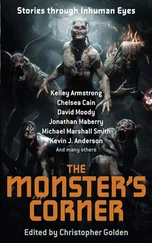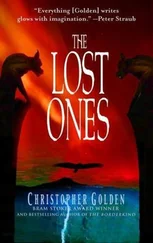Once I began to talk I wouldn’t shut up. It was like my thoughts had stored all of those words I’d heard in the Vox, and now that I’d figured out how to translate them from my ears to my mouth, I couldn’t stop making language. At four or five, even, I’d walk around all week repeating one word. “One week it was sundry ,” my sister told me once. “Sundry Sunday and sundry Monday and sundry Friday. Sundry socks and sundry macaroni and cheese. It was so annoying .”
Then, in the fourth grade, I roykoed this habit — a “nervous tic,” my Mom called it — of repeating anything anyone said. I couldn’t help it — the words I heard mirrored themselves in my mouth and resounded without my even thinking about it. I’d be sitting in Mrs. Trombly’s fourth-grade class when the dialogue would start to form on my tongue. “Turn to page twenty-two,” Mrs. Trombly announced one day, while her white-blond wig pointed to words on the chalkboard, “and you’ll find a study guide for tomorrow’s quiz.”
“Tomorrow’s quiz,” I muttered from my seat.
“I’m sorry,  ?”
?”
“  ?” I said.
?” I said.
“Did you have something to add?”
“Something to add?” I said.
The class laughtracked.
“Stop that,” said Mrs. Trombly.
“Stop that!” I said.
“That’s it. Detention! After school!”
“Detention! After school!” I shouted.
Detention, in our school, was a series of cages. The usual detention terms were two weeks for tardiness and three weeks for an outburst. I got four weeks for mimicking Mrs. Trombly. “Shit, man,” asked the cage during week two of my sentence. “What did you do?”
“Shit, man,” I said.
“Seriously,” said the cage.
“Seriously,” I said.
“Stop it,” said the cage.
“Stop it,” I said.
When detentions didn’t curb the behavior, the school convinced my parents to send me to a special quietschool — Appleseed Silence Academy — three afternoons a week. I was there in Principal Booth’s office when he suggested the idea to my parents. “  ’s teachers concur,” said the phone booth, “that he’s something of a pest.”
’s teachers concur,” said the phone booth, “that he’s something of a pest.”
“Excuse me?” said my Mom.
“That was Mrs. Bowe’s word,” said the principal — who was, as his name said, a phone booth. Booth opened up a folder and showed my parents a sheet of paper. “See,  ’s creativity scores are very high. But emotionally?” He held up a piece of paper.
’s creativity scores are very high. But emotionally?” He held up a piece of paper.
My Dad looked at my Mom.
“How dare you,” my Mom said to the phone booth.
I sat there in my chair, drawing on the soles of my Converse hi-tops.
“We don’t advocate total silence as a rule,” said Principal Booth, adjusting his toupee. “But we are trying to teach verbal control .”
“Control,” my Mom said.
“That’s why I’m suggesting Silence School,” said the phone booth.
“  doesn’t need lessons in silence,” my Mom said. “He was in a Vox for the first three years of his life!”
doesn’t need lessons in silence,” my Mom said. “He was in a Vox for the first three years of his life!”
“Which may be why he’s having trouble, actually,” Booth said. “He’s overcompensating.”
“How much meaning is it?” my Dad asked.
“Silence School?” Principal Booth told him the cost.
“Total?” said my Dad.
“Per month,” said the phone booth.
My Dad took off his thick glasses and rubbed his eyes.
The Academy was located up on Homicki Hill. It was built to house a small group of silent bessoffs who supposedly prayed, silently, every moment of the day.
I only ever saw one or two bessoffs my entire time there, though — the classes I attended were in the classrooms toward the front of the building. In a lot of ways it was like regular school — they still chained you to the desk with math, and all the clocks were dead or dying — except that the only lesson was silence. The teacher, a giant feather boa, wrote SHUT UP! in big bold letters on the blackboard, and every day she’d create new prompts designed to challenge our ability to keep quiet. Once, she brought in an entire pizza from Red Rose, ate one slice, and then asked all of us if we wanted any. If we answered, we were punished with an additional week of classes. Another time she showed us a video disc of Decision Man and stopped it right before the final battle with the Multiple Choices. If you shouted for her to continue the movie — to finish the story? More classes.
I really struggled in Silence School. One day, the boa walked up to my desk and asked me a direct question. “  , what is the brightest spot in Appleseed?”
, what is the brightest spot in Appleseed?”
I knew I was supposed to just sit there quietly, so that’s what I did. But when I didn’t respond, the bright purple boa put her hands on her feathery hips. “You live in Appleseed,  , and you don’t know the brightest spot?”
, and you don’t know the brightest spot?”
Of course I did — it was Fialky’s Worryfields! I rocked back and forth in my seat.
“Wow,  ,” said the boa. “And I thought you were smart.”
,” said the boa. “And I thought you were smart.”
“It’s Fialky’s Worryfields!” I said. “Everyone knows that!”
The boa slammed her fist down on my desk.
One afternoon a few days later, the boa ordered us to practice writing as quietly as we could. That’s what had landed several of these students in Silence School in the first place: their writing — either the sound of the pen on the page, or the noise of the words themselves — was too loud, and their teachers couldn’t take it anymore. That afternoon, we were focusing on the art of saying nothing, in words, on the page. The boa walked from row to row, looking over everyone’s writing. When she reached my desk she stopped. “Today is nice,” I’d scrawled on the page.
The boa held up a lavender finger. “But nice has some meaning, doesn’t it?”
I stared at her.
“It’s not negative. It’s actually quite positive!” she barked. “These words should say nothing , people!”
A few minutes later, a call came in on the classroom phone and the boa had to go down to the office. She left us writing silent sentences. As soon as she was gone, one of the erasers jumped down from the chalkboard, sidled over to me, and hopped onto my desk. “Ey,” he said.
“You got chalk on my page,” I whispered to him.
“Listen,” said the eraser. “I can’t sit up there watching you fuck up over and over. All she wants is for you to shut up. To just not talk . Why can’t you do that?”
“It’s my thoughts. I don’t even know that I’m saying the words.”
“Just take all the things you want to say and store them.”
I thought about this. “Store them for when?”
The eraser furrowed his brow. “What do you mean?”
“When do I say them?”
“You don’t say them, ever,” said the eraser. “Just keep them in your mind.”
Then we heard the boa’s heels clack-echoing through the halls; the eraser dropped off the desk and scurried back up to the blackboard just as the boa stepped into the room. On her way up to the front of the room, the boa walked past my desk. She looked at my page, where I’d written “Today is the day after yesterday.”
Читать дальше

 ?”
?”










